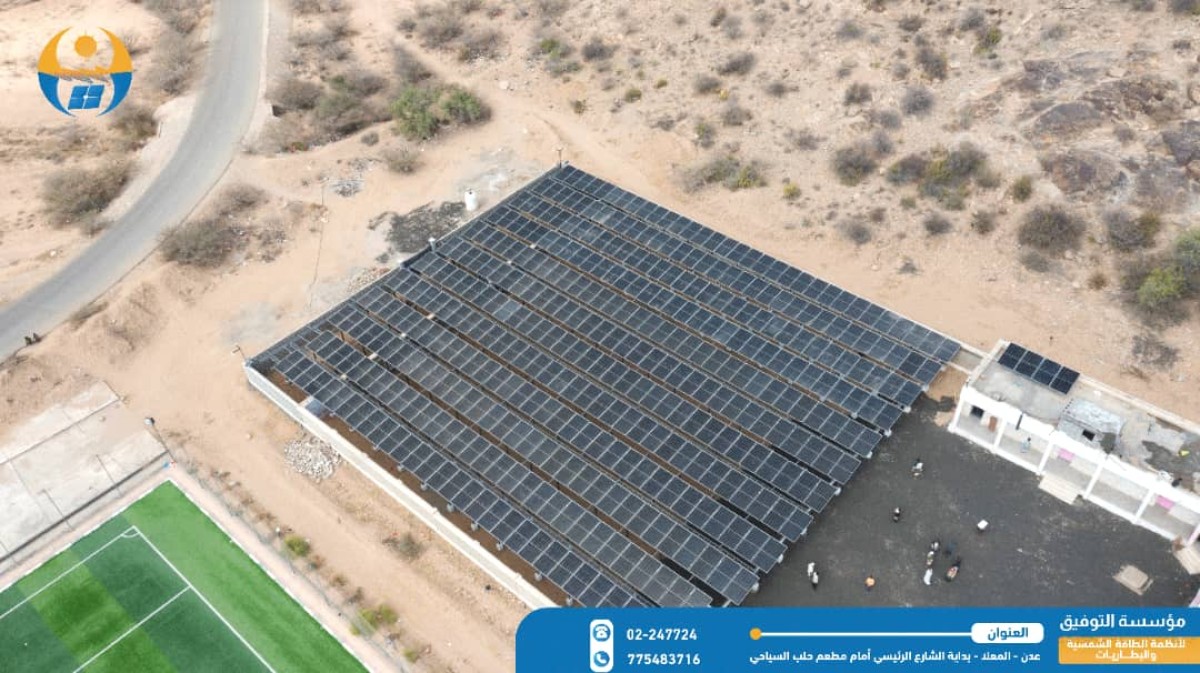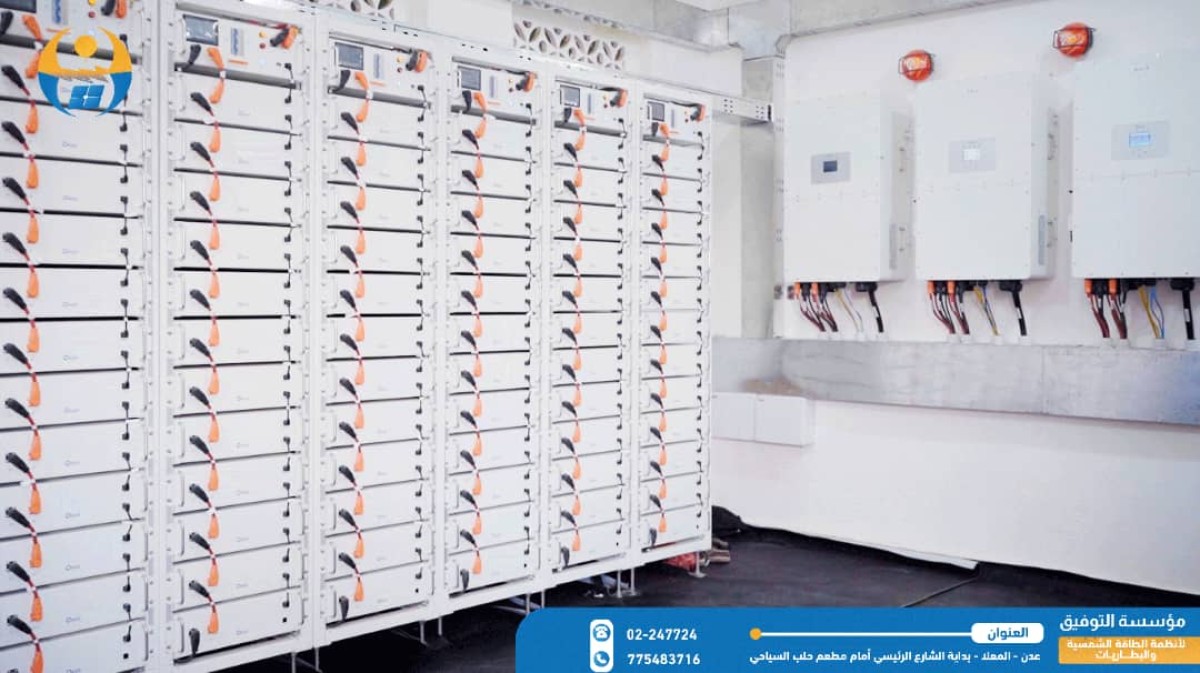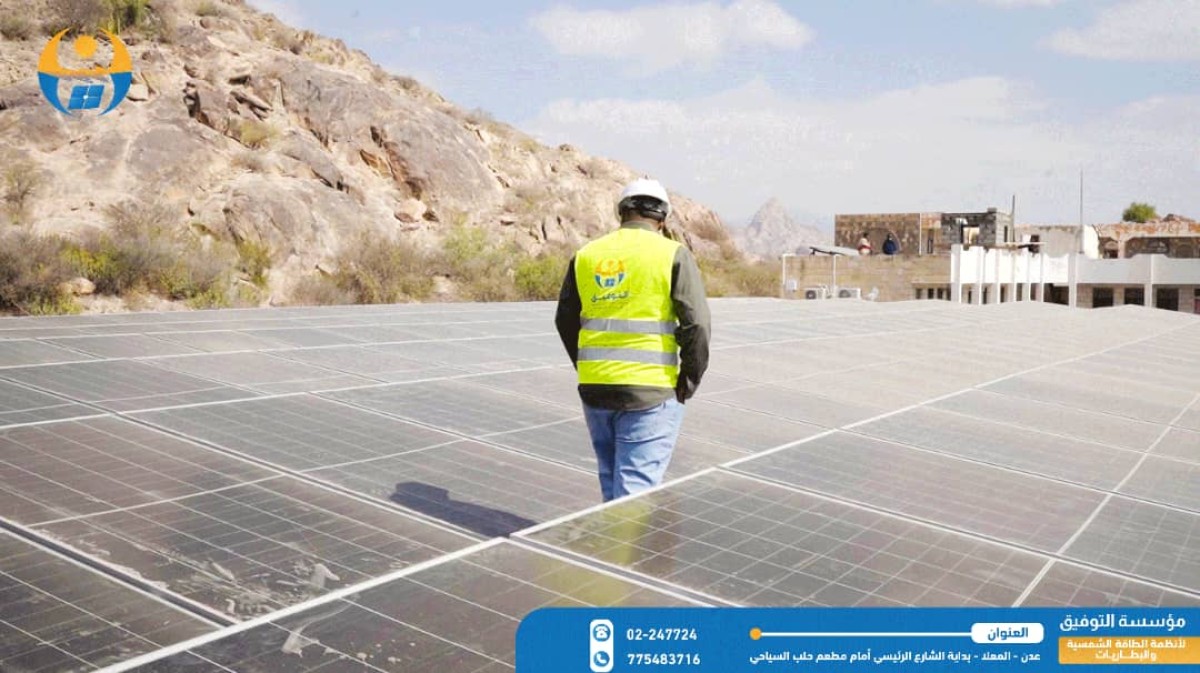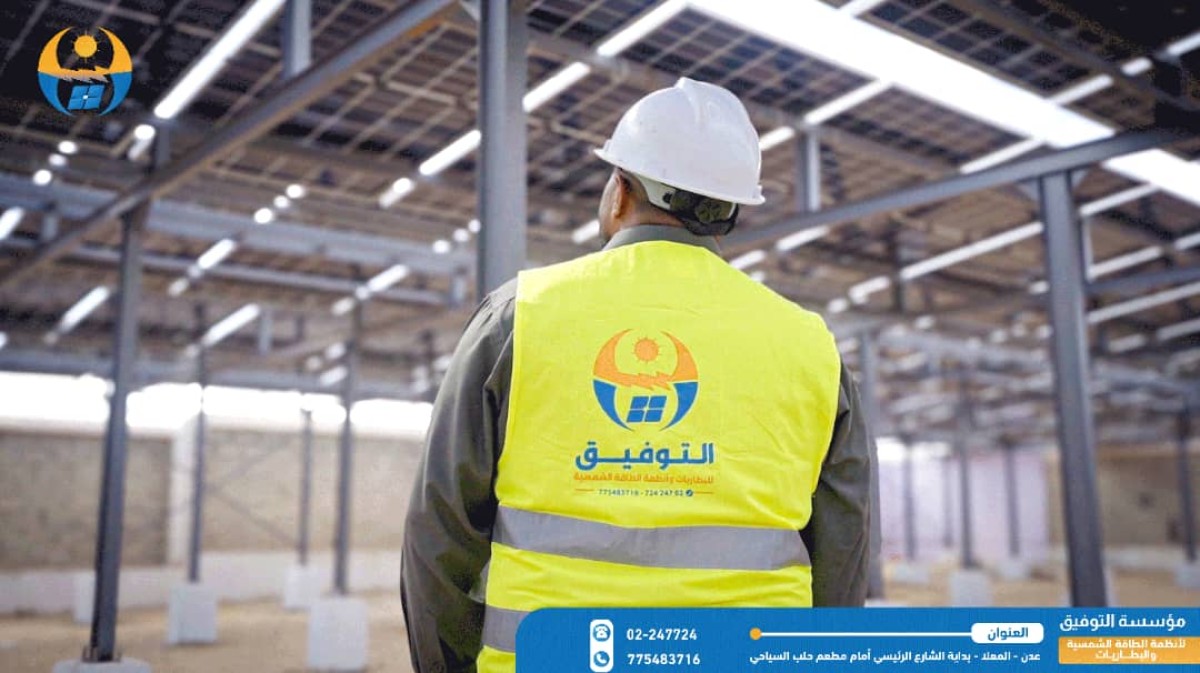President Hadi lights up the Azzan region with a solar energy station that operates 24 hours a day


Former President Abd Rabbuh Mansour Hadi supported the Azzan region in Al-Wadie District in Abyan Governorate with an advanced solar energy station, to supply the region with electricity 24 hours a day. This station is the first of its kind in the region in terms of size and operational capacity, in a step considered a qualitative leap for the development of the regions. Remote.
Engineer Rashid Al-Amoudi, Director of Al-Tawfiq Foundation for Solar Energy Systems, which is implementing the project, confirmed that the station was built using the latest international technologies, as it was provided with a storage capacity of up to 600 kilowatts using lithium batteries, and an operational capacity of 250 kilowatts through international “Daya” devices. 380 solar panels with a power of 700 watts were also installed, to cover the needs of between 120 and 150 homes with electrical energy in a sustainable manner.
Al-Amoudi expressed his pride in this great achievement, noting that the corporation has the ability to implement solar energy projects of up to 200 megawatts, thanks to its integrated engineering teams that include between 35 and 70 specialists, including civil and electrical engineers, in addition to experienced consultants. High-quality, multidisciplinary teams capable of implementing major projects according to the highest international standards.
On the other hand, the people of the Azzan region expressed their deep gratitude to President Hadi for this humanitarian and development initiative, which touched their daily needs and fulfilled a dream that seemed unattainable. They praised the great support provided by President Hadi, who is truly considered to have a “big and compassionate heart.” As they described it.
This project comes within the framework of efforts aimed at improving basic services in remote areas, and supporting the stability of local communities by providing sustainable energy sources that enhance the quality of life and support economic and social development.
From Saleh Al-Obaidi


